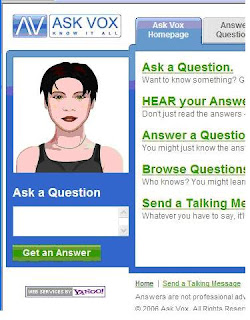Following on from Monday, I really believe that using ICT can help you implement meaningful inquiries in your classroom. It's worth reading the Min of Ed's action plan called Enabling the 21st Century Learner: e-Learning Action Plan
Consider the use of webquests or similar as a way of individualising the inquiry process using ICT. They also can help you with the scaffolding around the process.
This Wiki has links to various Inquiry resources : http://fitzil.wikispaces.com/Inquiry+Learning
Steve has mentioned Kath Murdoch and Tasmania. She has done a lot of work on ICT and Inquiry and is well worth listening to and reading about. There are a couple of her books in our library, notably:
Classroom connections: strategies for integrated learning and Planning curriculum connections: whole-school planning for integrated curriculum
Here are some useful links too:
- http://www.ltag.education.tas.gov.au/Planning/models/inquirymodel.htm
- http://www.ltag.education.tas.gov.au/Planning/models/default.htm
Animation and poetry. This could be a way of bringing poetry alive. A thoughtful animation of the well known poem:
Could this change the way you teach poetry? Children could create their own examples using Photostory 3 or Powerpoint.
UK English standards for year 5 for this poem (Note that the filename .nbk is for the Smartboard notebook)I thought this one was good too. The Piano Well worth a look and you can see the UK resources for this video here and here.
Another way of creating online slideshows is using Animoto. Here is an example created in just a couple of minutes......
Wellesley Football 2007
Animoto 30 second shorts are free to make - give it a go and consider how you could use it in your classroom.
Other online slideshows:
- http://www.slideroll.com/
- http://www.onetruemedia.com/otm_site/create_slideshow
- http://www.spresent.com/v2/
Not really video as such, but an interesting way of looking at the news through headlines. Click on the headline to read the story - You can play with the config to get just New Zealand stories..
http://www.marumushi.com/apps/newsmap/newsmap.cfm
This photo is amazing! Space station floating above Aotearoa! 12 Dec 2006 ( I can see Wellesley boys jumping off the wharf!) - http://spaceflight.nasa.gov/gallery/images/shuttle/sts-116/html/s116e05983.html
And continuing the space scheme, the latest version of Google Earth lets you look at space (our sky) in the same fashion with high resolution imagery. This has to be a great tool to use with a Smartboard. Download this version of Google Earth from the Wellesley Intranet. Let me kno if you have trouble installing it.
No relevance to videos or ICT but this link has a good diagram of the main coffee types - so that you know what you're asking for (or making). I heard some order a Vienna coffee the other night but I don't know how it's made. Can't see any mention of a Vienna here though. Any ideas??
http://www.lokeshdhakar.com/2007/08/20/an-illustrated-coffee-guide/








